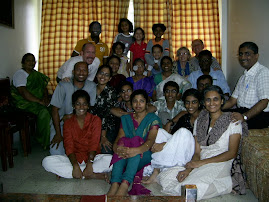 Acts 2.42 They devoted themselves to the apostles teaching...
Acts 2.42 They devoted themselves to the apostles teaching...What does it mean to teach?
The very word implies a change from not-knowing to knowing. Of sharing. Of helping move forward
When we teach - when we truly teach - we share wisdom in a way that transforms a person.
Teaching has both content (the "what") and the delivery (the "how"). The process of sharing wisdom relies on both - real truth ('sound doctrine') shared in a way that is loving and sparks change in the person who is learning.
Jesus was of course the master teacher. His disciples had 3.5 years of fellowship and learning with him. They then taught others - and the church devoted themselves to their teaching.
Our ignorance and our sinful nature need to be ever more fashioned into the nature of Christ. So much of who we are is a summary of the book of Judges: every man did what was right in his own eyes.
Thomas Daniel taught us last week how much we need to become holy. God has saved us. He has paid the price for all the rotten things we have done against Him. And now He desires that we become more and more like him. Jesus said: "Be perfect, even as your heavenly Father is perfect" (Mat. 5.48).
This process of change is not easy - and certainly not instantaneous. I was really struck when I came across this: Paul writing to the Galatian church says that he is "in the pains of childbirth again, until Christ is formed in you" (Gal. 4.19). Paul was not talking to people outside of the faith. But he is highlighting the challenging process of having Christ formed in us. Something that teaching helps us with immensely.
Scripture has a high view of teaching. Over and over the Psalmist yearns for instruction. "Teach me, O LORD, to follow your decrees; then I will keep them to the end" (Ps. 119.33) says the Paslmist. He strongly desires not only to know what, but also how.
Moses, just about to hand over the leadership to Joshua and depart from the scene tells the assembled Israelites: "See, I have taught you decrees and laws as the LORD my God commanded me, so that you may follow them in the land you are entering to take possession of it " (Deut. 4.5) and goes on to remind them not only to follow these decrees but also to make sure their children, and their children's children are taught to follow them (Deut. 4.9).
The true test of learning something? When you are able to teach it to someone else.
When the early church devoted themselves to the Apostles teaching - you can be sure that this was more than just listening. It was listening-practice-sharing - the whole teaching cycle. And that is one of the reasons we are blessed with the good news about Jesus today!

















